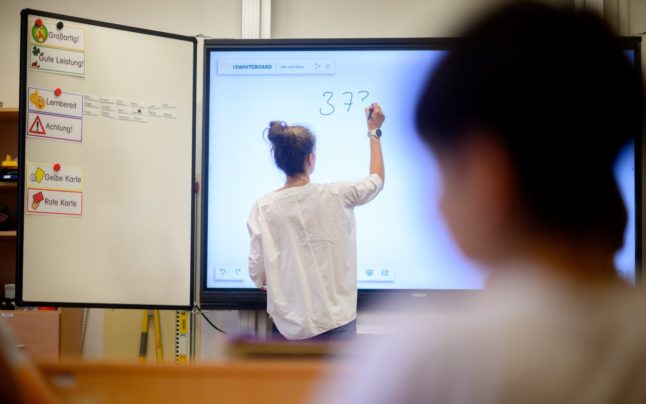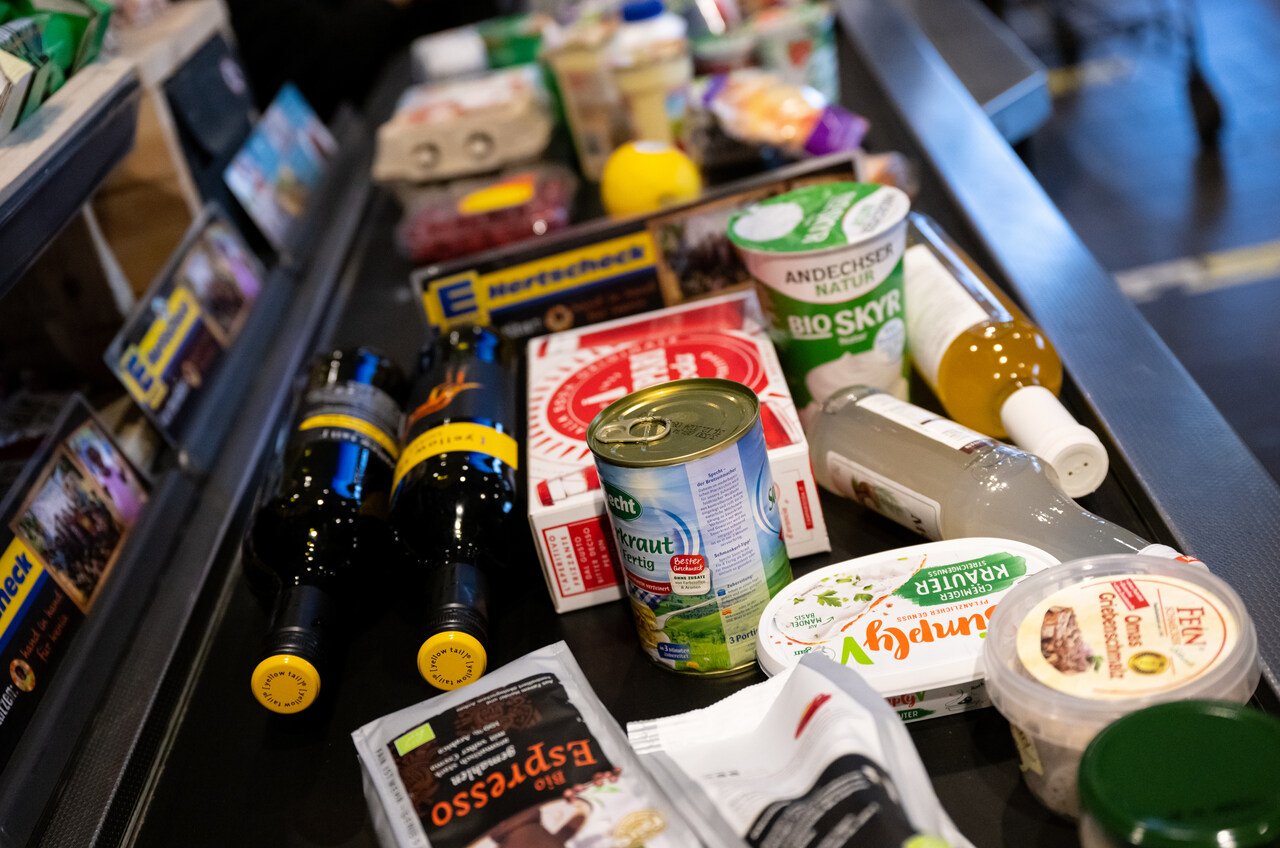The study, which was conducted by the Bertelsmann Stiftung, suggests that the burden on teaching staff will be significantly lower in the coming years than it currently is.
Though Germany is currently tackling a major shortage in the education sector, there could be an increasing surplus of qualified teachers over the coming years due to the lower rates of childbirth since 2021.
By 2035, the study predicts, there could be 45,800 more qualified teachers than are required to cover teaching needs in primary schools in Germany.
That’s significantly higher than the estimate that came from the Conference of Ministers of Culture (KMK). At their most recent conference at the end of 2023, state ministers predicted a surplus of 6,300 primary school teachers by 2035.
READ ALSO: Parents in Germany ‘facing burnout’ due to limited childcare options
According to the study’s authors, Klaus Klemm and Dirk Zorn, the high number of additional teachers won’t necessarily make it difficult for graduates in this field to find work.
Instead, the surplus could make it easier to implement all-day school programmes or to funnel extra staff into socially deprived areas.
In addition, primary school teachers could be trained to teach children in higher years at school.
Low birth rates
Amid a general shortage of labour in the German economy, the education sector has repeatedly been named as one of the areas with the largest skills gap.
Back in early 2023, a poll by the teachers union Verband Bildung und Erziehung (VBE) found that more than 50,000 teaching positions had been left open in German schools.
Of the schools surveyed, 57 percent said they had at least one open position they were unable to fill, with a quarter of those affected saying that between six and 10 percent of positions were vacant.
The urgency of the current staffing situation has led to a spike in under-qualified teaching staff working in German schools and has prompted the government to create new routes for skilled teachers to enter the country from abroad.
However, according to the Bertelsmann study, demographic shifts could also hold the solution to this growing issue.
READ ALSO: Germany sees rise in teachers without formal qualifications
While 795,500 children were born in Germany in 2021, the number of births dropped to 738,800 in 2022 and is projected to be just 689,300 in 2023, the report reveals.
This decline of more than 100,000 births means that the number of pupils will fall more sharply 2028 than assumed in the KMK forecast.
There are still some elements of uncertainty, however: while migration forecasts are factored in, the authors didn’t account for a mass influx of refugees due to unforeseen situations like war or natural disasters.





 Please whitelist us to continue reading.
Please whitelist us to continue reading.
Member comments